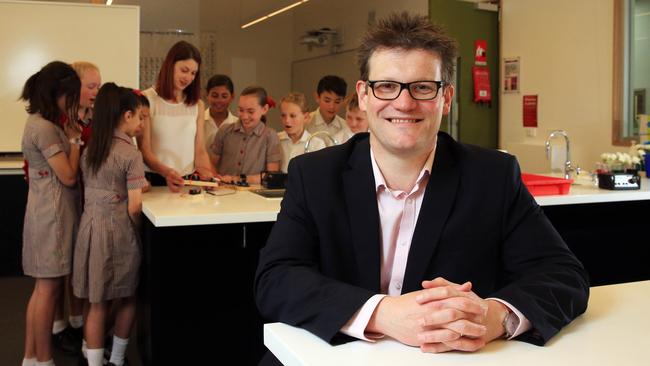Maths changes not likely to add up to success
Proposed changes to maths teaching will erode academic standards and have a negative impact on learning, say experts.

A group of mathematicians, academics and teachers have attacked proposed changes to the school maths curriculum, arguing that its adoption would hamper student learning and contribute to Australia’s educational decline.
In an open letter to the Australian Curriculum, Assessment and Reporting Authority, signatories said the draft national curriculum was “flawed”, criticising the promotion of problem-solving and inquiry learning while also delaying the teaching of foundational maths knowledge and skills.
They single out the learning of multiplication tables, which is not canvased until Year 4, and linear equations, which is considered a key skills for secondary school maths but has been pushed back from Year 7 to Year 8.
“There is simply no valid argument for these, and many other dilutions and delays,” the letter said. “The further elimination and weakening of fundamental skills will contribute to the root cause of Australian students’ slipping in international comparisons: the students end up knowing less mathematics.”
The latest backlash to the draft Australian Curriculum, which was released last month amid a push to improve declining student outcomes, comes after Education Minister Alan Tudge and several state education ministers have flagged serious concerns over some elements of the proposed curriculum changes.
Reading specialists, teachers and parents have also objected to a decision by ACARA to continue to support a balanced literacy approach to the teaching of reading in the curriculum, despite the evidence supporting systematic phonics-based approaches.
An open letter initiated by Developmental Disorders of Language and Literacy Network convener Max Coltheart attracted 650 signatures.
The maths campaign has been organised by author and teacher Greg Ashman, who works at the high-performing Ballarat Clarendon College in regional Victoria, which has previously been singled out by ACARA as a “high progress” school in the area of numeracy. Mr Ashman confirmed that he had instigated the letter but that its drafting was a “collaborative effort”.
Other signatories so far include University of Queensland maths professor Joseph Grotowski, UNSW professor of cognitive science John Sweller, Monash University mathematician Burkard Polster, as well as teachers from schools including Sandringham College and Presbyterian Ladies College in Victoria.
The experts have also taken aim at a decision to centre the maths curriculum around new core concepts – which ACARA has described as the “big ideas, understandings, skills or processes” essential in each subject – such as the “faddish” term “mathematising”. “The core concepts are confused and confusing, but it is clear that they represent a push toward a central role for ‘problem-solving’ and inquiry-based learning,” the letter said.
“We do not believe that a curriculum document should mandate a specific method of mathematics teaching, and it is especially concerning that the draft curriculum is extensively mandating learning through ‘exploring’ and ‘problem-solving’.
“In brief, the draft curriculum is systemically flawed.
“It is unworkable, and it fails to capture or to promote the high standard of mathematical knowledge, appreciation and understanding that Australia’s schoolchildren deserve.”
ACARA has invited feedback on the draft curriculum, with consultations running until July 8.







To join the conversation, please log in. Don't have an account? Register
Join the conversation, you are commenting as Logout